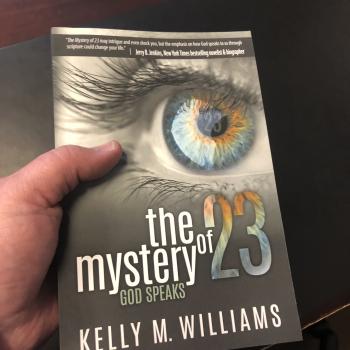 Let's be perfectly clear: Outcasts, the latest sci-fi series on BBC America, is a thinly veiled attempt to placate the network's most strident constituency during The Great Summer Whobernation of 2011.
Let's be perfectly clear: Outcasts, the latest sci-fi series on BBC America, is a thinly veiled attempt to placate the network's most strident constituency during The Great Summer Whobernation of 2011.
Despite the untimely demise of Dr. Who—the show lasted a mere eight episodes—Outcasts was an intriguing option for freshly-minted American WhoHeads. It addressed a number of intriguing (and timely) present-day questions, artfully draping them in the trappings of the not-too-distant future.
Set in the year 2040, Outcasts follows a small band of castaways who have traveled from Earth (and its obligatory geo-political and nuclear unrest) in search of a "Goldilocks" planet to call home. Led by the broodingly charismatic Richard Tate, the survivors finally settle upon the appropriately-named Carpathia, a bleak, beautiful world of dangerously unpredictable storms and even less predictable, more dangerous inhabitants. Now, after ten years of isolation and uncertainty, they are elated at the unexpected arrival of a ship bearing friends, family, and fellow survivors from Earth.
The simultaneous arrival of Julius Berger, a celebrated political leader back on Earth and a relentless (if discreet) agitator, is far less enthusiastically received by Tate, whose familiarity with Berger's power-hungry ways troubles him greatly.
Equally troubling to Tate is the increasing appearance of humanoid lifeforms in the area, surrounding the development of Forthaven. Initially known simply as The AyCee, their crucial role in the colony's earliest days (as well as the calamitous role Tate played in their eventual banishment) comes gradually into focus. Now recognized by their true name—Advanced Cultivars (AC's)—they are revealed not as the planet's original inhabitants, but as genetically-modified, sterile human clones bred for exploration and experimentation by Forthaven's founders. Long-thought dead, they have returned in search of justice, and to visit a bit of well-deserved vengeance upon Tate and his fellow leaders.
Oh, and they are no longer sterile.
As one might expect from a cancelled series, Outcasts' final moments are frustratingly inconclusive. Season-ending cliffhangers may be currently acceptable, but hanging one's favorite characters out to dry is still frowned upon, and audiences and critics alike expressed dissatisfaction when the final episode aired across the pond.
It is easy to understand the Beeb's reluctance to continue the series, though. The world of Carpathia feels almost unforgivably derivative, mirroring any number of recent television juggernauts in both its mood and storylines. Building a story around a small group of humans struggling to survive in a hostile (and vaguely spiritual) environment while being attacked by "Others" they rarely see (and barely understand) has J.J. Abrams' Lost written all over it. There are also striking similarities to its most obvious influence, Battlestar Galactica, which does not sit well with those viewers who prize originality above all else.
Yet despite the obvious similarities between Outcasts and its precursors, it addressed topics well-worth contemplating, particularly for those of us who find the Frankenstenian tendencies of Modern Medicine more immediately troubling than SkyNet's potential self-awareness.
Battlestar Galactica's most pressing question—what exactly are the surviving members of the human race to do with the robotic beings its scientists have created?—is one that lurks on the outskirts of each mind-blowing new advance in computer technology. Yet it is also a question which faces more immediate philosophical hurdles than ethical ones.
Instinctively, we humans recognize ourselves as more than the sum of our experiences; more than simply a jumble of responses to various stimuli. Designing a robotic, computerized entity that reacts exactly as humans do is not the same thing as creating a true human entity. Even if one were to finally understand if and how a computer could become self-aware (obstacles which Battlestar Galactica answers, in the finest Darwinian tradition, by the simple multiplication of secrecy and time) the question of what exactly this self-awareness would mean remains. Does the mere fact that we have produced a tool that reacts the same way we do mean that it is no longer a tool?





